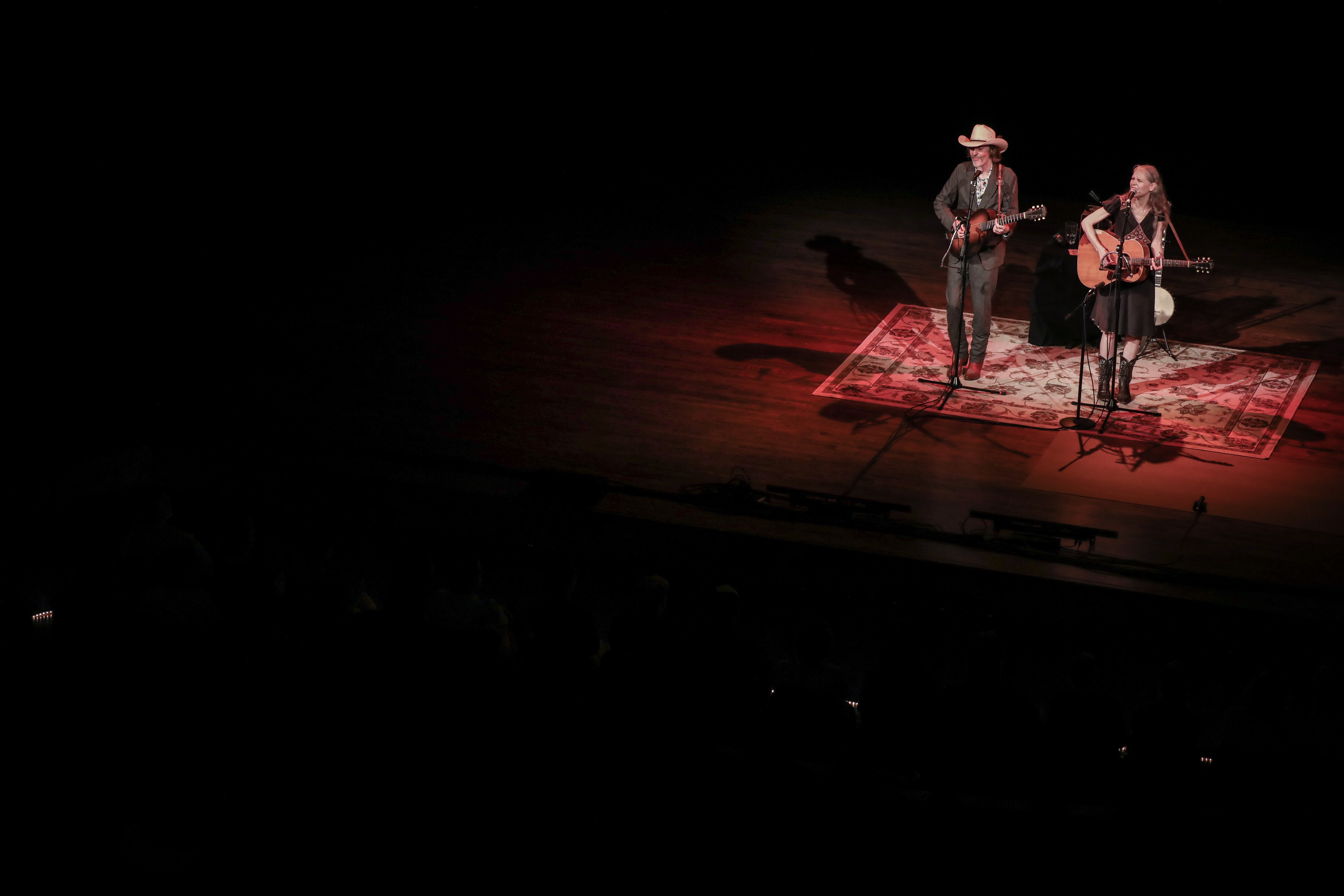 Jamie Harmon
Jamie Harmon
An audience sat in rapt attention Thursday evening as Gillian Welch and David Rawlings presented the austere songs and sublime harmonies they’ve perfected over the past couple decades. And if they were well rehearsed and precise in their playing, the night still benefitted from the couple’s easygoing looseness. After a confident opening singing “Scarlet Town,” they suffered a false start on their second number, “Ruination Day (Part 2),” with Rawlings insisting on tuning up again. With their vintage instruments, this was to prove a recurring theme of the night. But Welch took it all in stride.
She took on a faraway look in her eye as Rawlings tuned up. “Way off in the distance,” she quipped, “you see professionalism, out on the horizon.” And while the pair’s humility, dedication, and sensitivity were always felt, once such banter was over, they locked down with breathtaking unity.
Their axes of choice, with Welch on a warm, big-sounding vintage Gibson (or banjo) and Rawlings on what appeared to be a pre-WWII parlor guitar, complemented each other perfectly, as the tinnier sound of Rawlings’ guitar meshed with Welch’s rhythmic strums.
And of course, there were the harmonies. Local songwriter Cory Branan noted after the show that “they sounded like blood relations,” and indeed, the blend they achieve is reminiscent of many country sibling groups of the past.
At times, Rawlings would sing lead, trotting out songs from his Dave Rawlings Machine solo project. After they sang one such number, “Midnight Train,” Welch commented that “That’s as rambunctious as we get. Now we’re gonna bring you all way down.” And with that, they launched into the curiously tormented “The Way It Will Be.”
A few more songs in, and they had the crowd on their feet with “Elvis Presley Blues.” Until then, I hadn’t realized how appropriate it was to hear them play during “death week.” But as soon as they played the song, I felt it, and so did the audience, who gave the pair a standing ovation. “That’s the most an audience ever got that song,” Welch enthused.
After ten songs, there was a short intermission, followed by another set. One treat of their live show, as distinct from the records, is that Rawlings becomes gradually more unhinged in his playing as the evening wears on. While he takes some fine solos on their released recordings, his live playing becomes more exploratory, at times reminiscent of a veteran jazz musician in its venturesome quality.
At one point, Rawlings took over all instrumental duties with his banjo in hand, giving Welch little to do except sing, hambone, and dance a little jig that came off as homespun clogging.
Though Welch hasn’t released any original material under her own name for some seven years, it mattered little to this audience, a veritable who’s who of Memphis musical talent. Welch’s songs are built to last: the spare, suggestive lyrics all share a classicism, even when singing of contemporary concerns like the girl who “put a needle in her arm,” and the music suggests classic country and bluegrass, but always with a twist.
The classics are never far away from her songs, of course, and it was wholly appropriate when Welch and Rawlings finished up with a rousing “I’ll Fly Away,” the chestnut inspiring the typically reticent Memphis crowd to sing along with abandon (and harmonies). It was a heartfelt night for performers and audience alike.
Check out the slideshow from last night’s show, with photos by Jamie Harmon.
[slideshow-1]